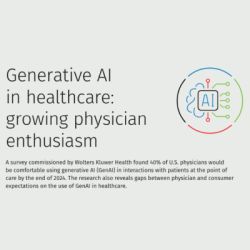Machine learning algorithms now enable some hospitals in Boston to predict diabetes and heart disease hospitalisations up to a year in advance with 82% accuracy. In contrast, guidelines used by cardiologists to predict a patient’s risk of cardiovascular disease are about 56% accurate.
Indeed, those algorithms could become even more accurate with the ability to factor in personal data captured on smartphones and wearables, said Yannis Paschalidis, the director of the Center for Information Systems Engineering at Boston University.
Engineers from BU work with local hospitals, including Brigham and Women’s Hospital and Boston Medical Center, to develop machine learning solutions to help with management of heart disease and diabetes – two of the most expensive illnesses. According to research data, spending on diabetes, heart disease and back and neck pain cost consumers more than $275 billion in 2013, with diabetes alone accounting for more than $100 billion. Early identification could potentially save patients, providers and insurers billions.
Recognising an opportunity for cost savings and better care, startups have been targeting diabetes – in some cases promising to reverse Type 2 diabetes in 100 million people over the next decade. For example, Partners HealthCare has teamed up with GE to develop and commercialise AI solutions specifically for the healthcare industry.
For some clinicians, however, machine learning and artificial intelligence are not a cure-all to disease management. One U.K. nephrologist told CNBC that AI has “almost become an advertising tag line, which few people can define.”
But Paschalidis noted that machine learning will only become more accurate as data sets expand with access to personal data from wearables and smartphones. Also, with growing adoption of the value-based payment model, hospitals are likely to build analytics into their care processes.
“If we can now predict future hospitalisations with more than 80% accuracy using medical records alone, imagine what is possible if we can tap into this trove of personal data,” Paschalidis said. “Recommender systems could be used to nudge us to adopt healthier eating habits and behaviours. The holy grail of heading off the emergence of conditions by keeping people well could be realised.”
Source: Fierce Healthcare
Image Credit: Pixabay
Latest Articles
cardiovascular disease, machine learning, hospitalisations, Recommender systems
Machine learning algorithms now enable some hospitals in Boston to predict diabetes and heart disease hospitalisations up to a year in advance with 82% accuracy. In contrast, guidelines used by cardiologists to predict a patient’s risk of cardiovascular d



























